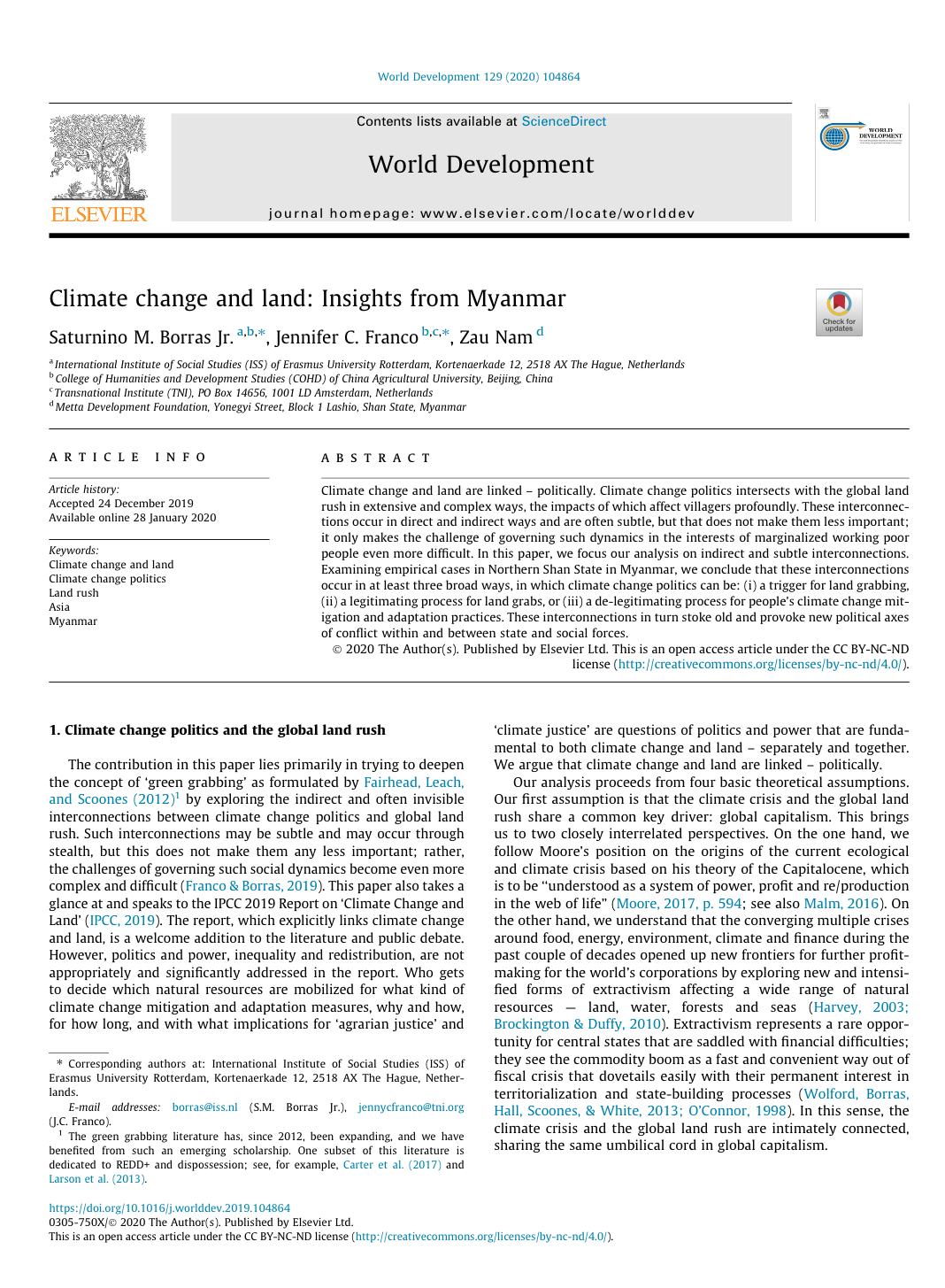
Keyword(s)
Author(s)
Saturnino M. Borras Jr., Jennifer C. Franco., Zau Nam
Country(ies)
Publisher
Published Date
Access
DOI
(a) International Institute of Social Studies (ISS) of Erasmus University Rotterdam, Kortenaerkade 12, 2518 AX The Hague, Netherlands
College of Humanities and Development Studies (COHD) of China Agricultural University, Beijing, China
(b) College of Humanities and Development Studies (COHD) of China Agricultural University, Beijing, China
Transnational Institute (TNI), PO Box 14656, 1001 LD Amsterdam, Netherlands
(c) Metta Development Foundation, Yonegyi Street, Block 1 Lashio, Shan State, Myanmar
Climate change and land are linked – politically. Climate change politics intersects with the global land rush in extensive and complex ways, the impacts of which affect villagers profoundly. These interconnections occur in direct and indirect ways and are often subtle, but that does not make them less important; it only makes the challenge of governing such dynamics in the interests of marginalized working poor people even more difficult. In this paper, we focus our analysis on indirect and subtle interconnections. Examining empirical cases in Northern Shan State in Myanmar, we conclude that these interconnections occur in at least three broad ways, in which climate change politics can be: (i) a trigger for land grabbing, (ii) a legitimating process for land grabs, or (iii) a de-legitimating process for people’s climate change mitigation and adaptation practices. These interconnections in turn stoke old and provoke new political axes of conflict within and between state and social forces.
Cite
Jr, B.S.M., Franco, J.C., Nam, Z., 2020. Climate change and land: Insights from Myanmar. World Development, https://doi.org/10.1016/j.worlddev.2019.104864.